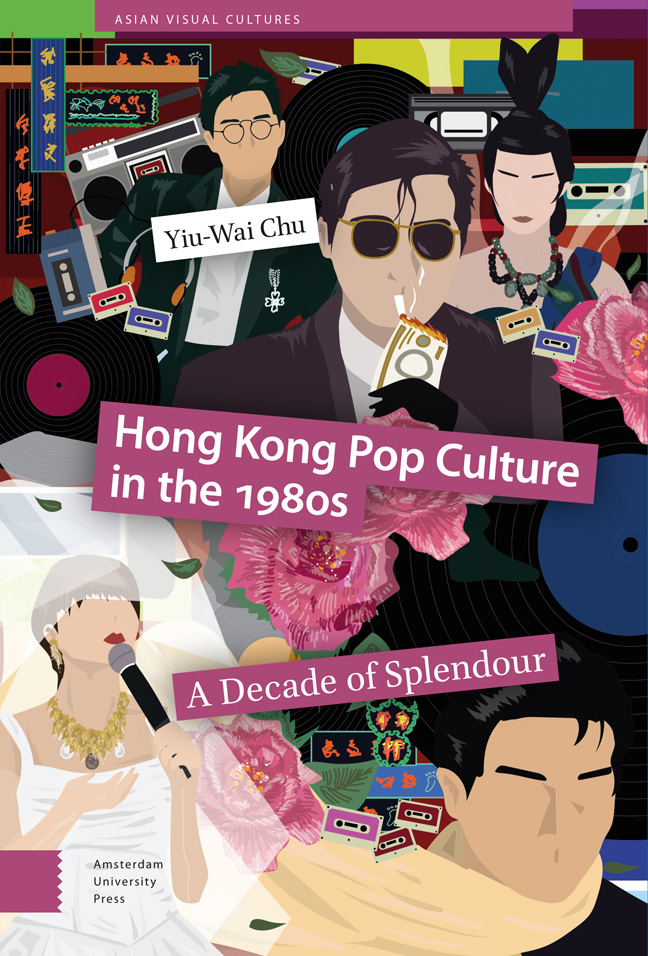Book contents
- Frontmatter
- Acknowledgments
- A Note on Romanization and Translation
- Contents
- Dedication
- Prologue: Horse Racing and Dancing as Usual
- Introduction
- 1 Televising Pop: New Stars and Renewed Sensibilities
- 2 Golden Days of the Silver Screen: Cinematic Imagination in a Not Yet Fallen City
- 3 The Sound of Chinese Cool: Do You See the City Sing?
- 4 The Importance of Being Chic: Fashion, Branding, and Multimedia Stardom
- 5 The Practice of Everynight Life: Disco as Another Kind of Dance
- 6 (Un)Covering Cosmopolitan Hybridity: Every Great City Deserves a City Magazine
- Epilogue: ‘We’ll Always Have Hong Kong’
- Select Bibliography
- Glossary
- Index
3 - The Sound of Chinese Cool: Do You See the City Sing?
Published online by Cambridge University Press: 20 February 2024
- Frontmatter
- Acknowledgments
- A Note on Romanization and Translation
- Contents
- Dedication
- Prologue: Horse Racing and Dancing as Usual
- Introduction
- 1 Televising Pop: New Stars and Renewed Sensibilities
- 2 Golden Days of the Silver Screen: Cinematic Imagination in a Not Yet Fallen City
- 3 The Sound of Chinese Cool: Do You See the City Sing?
- 4 The Importance of Being Chic: Fashion, Branding, and Multimedia Stardom
- 5 The Practice of Everynight Life: Disco as Another Kind of Dance
- 6 (Un)Covering Cosmopolitan Hybridity: Every Great City Deserves a City Magazine
- Epilogue: ‘We’ll Always Have Hong Kong’
- Select Bibliography
- Glossary
- Index
Summary
In its heyday in the 1970s and 1980s, Cantopop defined the look, feel and – with its lush, ultra-refined production values – even the sound of Chinese cool.
Abstract
The 1980s saw a surge in Hong Kong's pop music scene, which witnessed a paradigm shift on several fronts: idol business, cross-media and crosscultural hybridizations, and the concert industry. Having gathered enough momentum in the 1970s, Cantopop became firmly established as a pop music product for the consumption of the majority of the listening and viewing public in Hong Kong, as well as Chinese communities across the world. Hong Kong Cantopop, while unabashedly commercial, remained diversified and hybridized, possessed of creative agency. This chapter examines how Cantopop turned into the trendsetter of Chinese pop music, becoming a multibillion-dollar pop industry acclaimed as “the Chinese cool”.
Keywords: hybridizations, megastars, music awards, concert industry, music magazines
The Making of a New Epoch
1984 was an important year in the history of Hong Kong, as I have argued elsewhere. A taxi strike, during which angry drivers ‘occupied’ main roads to protest against a proposed steep increase in registration and license fees, triggered a night of rioting in Mong Kok, the busiest district in Hong Kong, on 13 January. It was the first major riot since 1967 in the territory. In fact, the social unrests plaguing it had been brewing for years. The early 1980s was a time of uncertainty for the city and its people, as their future after 1997 was still under negotiation. The infamous tumble of Margaret Thatcher, the then Prime Minister of the United Kingdom, on the steps of the Great Hall of the People after her meeting with Deng Xiaoping, the then leader of the People's Republic of China, in Beijing on 24 September 1982 was seen as presaging the fall of British governance in Hong Kong. The people's confidence in the city's future hung by a thread, and subsequently the stock and property markets plummeted to rock bottom. The Sino-British Joint Declaration was formally signed by the People's Republic of China and the United Kingdom on 19 December 1984, and Hong Kong people finally faced the reality that the then British colony's return to its motherland in 1997 was inevitable.
- Type
- Chapter
- Information
- Hong Kong Pop Culture in the 1980sA Decade of Splendour, pp. 115 - 144Publisher: Amsterdam University PressPrint publication year: 2023



